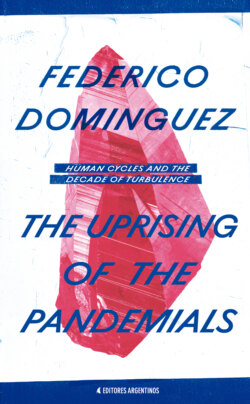Читать книгу The Uprising of the Pandemials - Federico Dominguez - Страница 12
На сайте Литреса книга снята с продажи.
EMERGING GAPS
ОглавлениеIn the 1980s, a massive gap began to emerge between the rich and the rest of society. The income of the lowest segment practically came to a standstill, while the richest 10% –especially the top 1%–watched their income grow leaps and bounds. Since 1980, the percentage of total after-tax income of the top 10% of Americans doubled, reaching 40%. (7) This group enjoys a high standard of living, large houses and apartments, luxury cars, organic food, trips to exotic destinations, education at the best universities, and a healthcare system with the best specialists in the world. In contrast, the bottom 50% of Americans saw their incomes shrink by 20%. Not only have they lost income, but also social status.
Inequality is not a problem in and of itself. It is understandable that there are people with higher incomes and more wealth than others. It is part of the capitalist, democratic system we live in. The question is: to what extent can this inequality be explained by meritocracy? Are the disenfranchised this way due to a lack of effort or lack of opportunities? The lack of an assured baseline –or the stall in the income of the lowest earners for decades on end– while also failing to see their efforts yield their desired results, brings them great frustration and unease.
If a businessperson who earns hundreds of millions a year wants to buy an enormous house in The Hamptons, a flat in NYC, a penthouse in Paris, an original Picasso, and a private jet to escape to an island during the pandemic, they are in their full right to do so, provided they pay their taxes and do not break any laws.
How should the system work in order to be fairer? Here are a few examples: for every flight taken by millionaires, they should pay to compensate for the CO2 emissions generated; for the apartments they own in New York and Paris, they should pay an additional tax if they are not their primary residence and are not offered as rentals and located in areas with housing deficits. Conceptually, these taxes are fair because the planet belongs to everyone: the use of scarce available space should follow a principle of fairness, while the damage to mother nature should comply not only with a rule of fairness but also of remedy and conservation, given it involves intergenerational resources.
Now, this person, like any other, should not be allowed to use fiduciary structures such as irrevocable trusts to diminish their tax obligations. I see no reason why they should pay an income tax higher than the 30% or 40% in effect in most countries, but –as Warren Buffet once said– their secretaries should not be paying a higher tax rate than them. Also, as in many countries, it would be fair for their heirs to pay an inheritance tax once that person passed away. These types of legal frameworks increase the perception that the system is fair.
In many countries, there is resentment toward the upper classes. In general, this is driven by politicians looking to politically benefit from poverty. In others, it is because some people believe that their fortunes come from privilege: that their companies are protected by powerful lobbyists, that the government favors them with fiscal benefits, that they are spineless bankers, that they inherited their money without pay taxes or something along those lines. Most of the time this is not the case, and these people are simply doing everything within the legal framework to maximize their income. On the other hand, when the poor see their lives become increasingly difficult, they become frustrated. But what we must understand is that the problem is not the millionaires, but rather governments and their flawed public policies that increase inequality.
